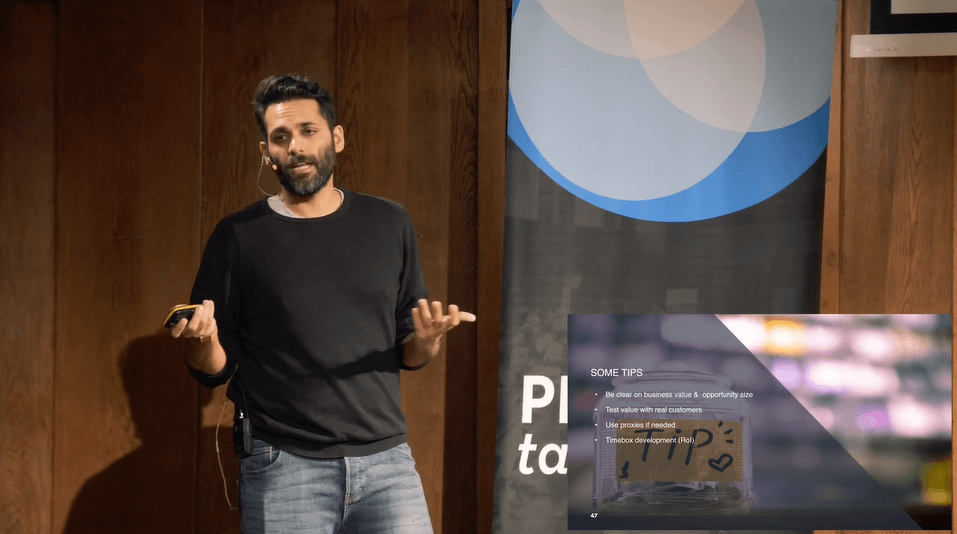In this ProductTank Toronto talk, Mitchell Gillespie (Director of Product Management at Wave HQ) shares some thoughts on what he calls "qualitative intelligence". As product managers are constantly striving to understand why their customers and stakeholders behave in certain ways, they are often in dire need of high-impact qualitative understanding. Doing this will isn't just about doing the occasional bit of research, but potentially also about instigating change in an organization, both for our benefit, and the benefit of the people we collaborate with. Working like this is one of the best ways to invoke your powers of influence as a product manager.
Qualitative Intelligence
To start with, Mitchell says that anything that you undertake as a product manager can be looked at through one of three lenses that will help you frame and understand the potential impact of what you're doing:
- A structural lens refers to how people fit things into their own mental models.
- An ideological lens refers to how something impacts a person’s core beliefs.
- A relational lens refers to the impact something has on a team, a customer, and the people around you.
Being able to frame your work in terms of different kinds of impact on the people around you is incredible powerful. And of course, these lenses are also invaluable when it comes to what Mitchell refers to as "qualitative intelligence". At it's core, qualitative intelligence is the ability to acquire and apply the kind of powerful insights you gather from qualitative research. Gathering a huge body of data on why customers take certain actions is only valuable if you're able to use that insight to develop a better understanding of your customers, and take action as a result.
Challenges Product Teams Face
Mitchell takes us through three big challenges they faced at Wave, and how qualitative intelligence has helped them. Unsurprisingly, these challenges will be somewhat familiar to any product team.
- Data overload – Sometimes there is a lot of qualitative data available, but it isn’t worth interpreting… and it's hard to know which data to focus on.
- Delivery velocity overrides research – In organisations which are committed to moving fast (that might even be part of their competitive advantage), that focus on delivering fast can make difficult to carve out the time to conduct customer research.
- Aspirations of continuous discovery – The organisation believes in the ethos of continuous discovery, but time is limited and so discovery is never a top priority.
So, there's a lot of data to sift through, time is a rare commodity, and there's a desire to be continuously discovering, but a struggle to prioritise that. Sound familiar?
Invest in Agents of Change
In order to turn qualitative data into useful insights, investments need to be made into what Mitchell describes as agents of change, and he walks through what he sees as the five key agents to focus on (in no particular order):
- People and teams – building relationships and working towards other people's outcomes is a powerful way to develop a better understanding of what is relevant to different parts of the business.
- Strategic thinking – apply the lenses that Mitchell led the talk with, and you'll quickly start to build up a more nuanced mental model of what different stakeholders need from you.
- The right tools – tools are not the be-all and end-all, but the right tools can massively amplify your ability to get access to, and correctly segment, the right data,
- Facilitation – similar to partnering with people and teams, facilitation around the business will help you understand diverse needs, and give you an opportunity to embed tools and thinking across the business.
- Automation – A lot of processes – particularly research processes – can be unnecessarily manually intensive. Find ways to automate time-sinks, to make processes along the customer journey more efficient.
The key takeaway from this talk is that product managers are cross-functional enablers, and need to always be working to understand the "why" behind their customers' and their stakeholders' behaviour. And while this is an ongoing, daunting task, through qualitative intelligence, product managers can find opportunities to develop intuitive understanding, and get the right information at the right time.






